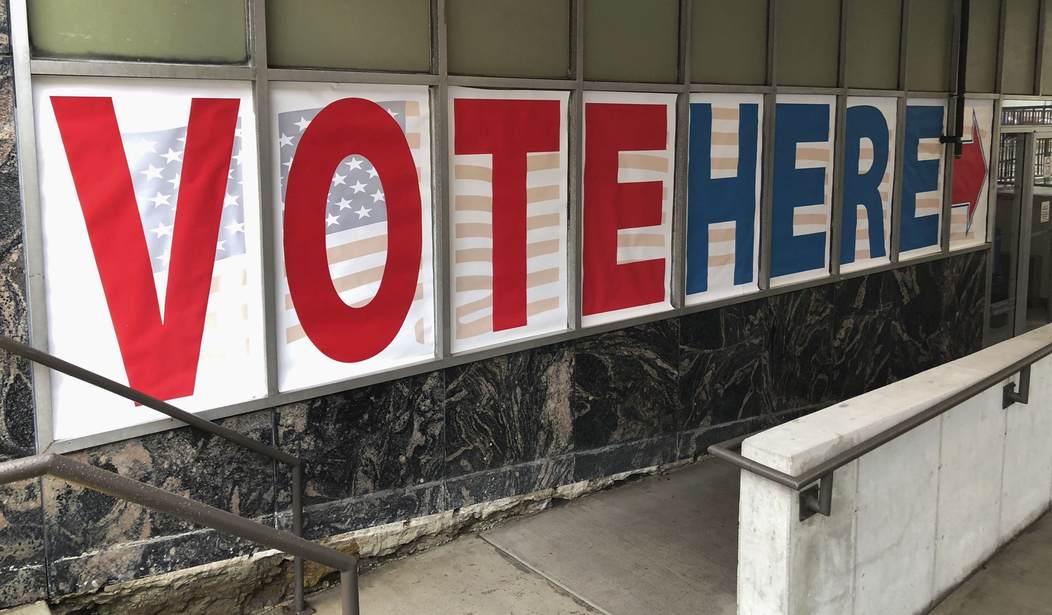The political models of large television, radio and direct mail buys that have dominated so much of political life and the tactics of the consultant classes don't work well for the generation of voters coming of age. And for those interested in sharing a political message, perhaps the best news of all is that changes in tactics can be extremely cost effective, at least until biased social media platforms block free speech.
Launched this year, Students for Life Action engaged in the Virginia election using a volunteer force of Generation Z and Millennial pro-life advocates, making more than 350,000 person-to-person contacts. While many are talking about the switch from red to blue in the commonwealth, frankly it could have been worse, and it was an expensive win. Equally important in the follow-up analysis of this election is looking at what worked in some key races.
Pro-life advocates, daily facing a billion-dollar abortion industry headed by Planned Parenthood, know that it's always going to be an uphill battle. But that doesn’t mean we will always lose. The key for a smaller, motivated, volunteer team is choosing your battles … and free pizza.
For example, state senator Bryce Reeves defeated an EMILY’s List-backed challenger, Amy Laufer, who received $500,000 plus in support from outside groups, compared to an SFL Action investment of $14,500. Senator Amanda Chase defeated a pro-abortion candidate backed by all the pro-abortion groups as well as Alec Baldwin, with triple digit financial support. And in an upset victory, Jen Kiggans defeated Delegate Cheryl Turpin in Virginia Beach to hold a Republican seat formerly held by Frank Wagner. The financial stakes were even higher here with more than $1 million in outside monies.
In each of these districts, SFL Action did the hard work of getting out the vote.
In these and other carefully chosen contests, pro-life students added their efforts to hold the line against well-funded, Hollywood backed, political players with all kinds of outside help and money.
Recommended
Money isn’t everything, but it can help. Yet consider that in the last election, Hillary Clinton had a war fund of $1.4 billion compared to $957.6 million, including $623.1 million spent by the Clinton campaign compared to about half that ($334.8 million) spent by the Trump campaign, according to the Washington Post. Sometimes the person spending the most money is the most disappointed the day after an election.
It’s not surprising that in an environment in which political monies flow toward abortion supporters and Democratic coffers that there are so many efforts to restrict free speech in social media from outsiders. Important to a generation attached more to their phones than traditional media are the kinds of platforms that are not found in TV Guide.
For us at SFL Action, the significance of this maiden voyage into Virginia’s election cycle was not simply seen in 9 key races where we helped turn out pro-life voters and won. It is seen in the return on investment in a new generation of pro-life leaders taught effective engagement.
This year, SFLA will have 250,000 conversations on abortion, life-affirming policies, and help for pregnant and parenting students. Rather than staying in offices inside the beltway, our model will be to have those conversations with students where they go to school, work and live. That kind of networking is central to the political conversations we are having as well.
In total in Virginia’s election, SFL Action volunteers completed about 1 million text messages (targeting 250,000 voters), knocked on 15,000 doors, made 75,000 phone calls, engaged 101,000 times on Facebook (video views, likes, comments, shares on our targeted ads), and reached at least 16,200 people through mailers. This student-fueled effort resulted in 450,000 voter contacts between June 2019 and November 2019.
And the best news of all, the total cost per voter reached worked out to about $.25 per voter contact.
This model can be repeated, and will be, in the 2020 election cycle, and equally important, in state legislatures.
Founded as a post-Roe organization, Students for Life of America is preparing for Life after Roe, when the issue of abortion is returned to the states and citizens will finally have a voice and a vote for life. And we will rally volunteers to our cause in direct conversations held outside of traditional venues and platforms. The Pro-Life Generation is ready to have a lasting impact, but in new and innovative conversations.

























Join the conversation as a VIP Member